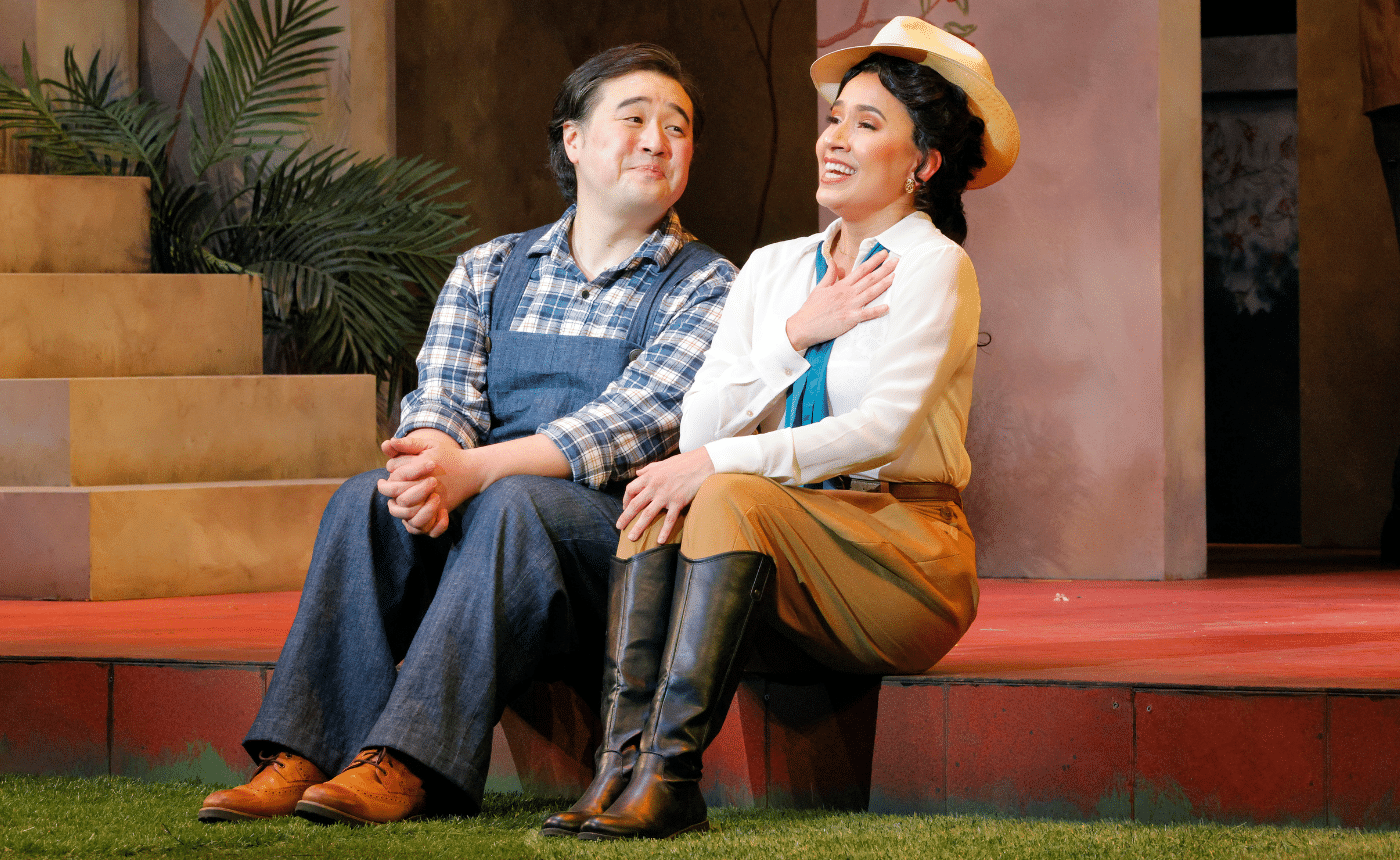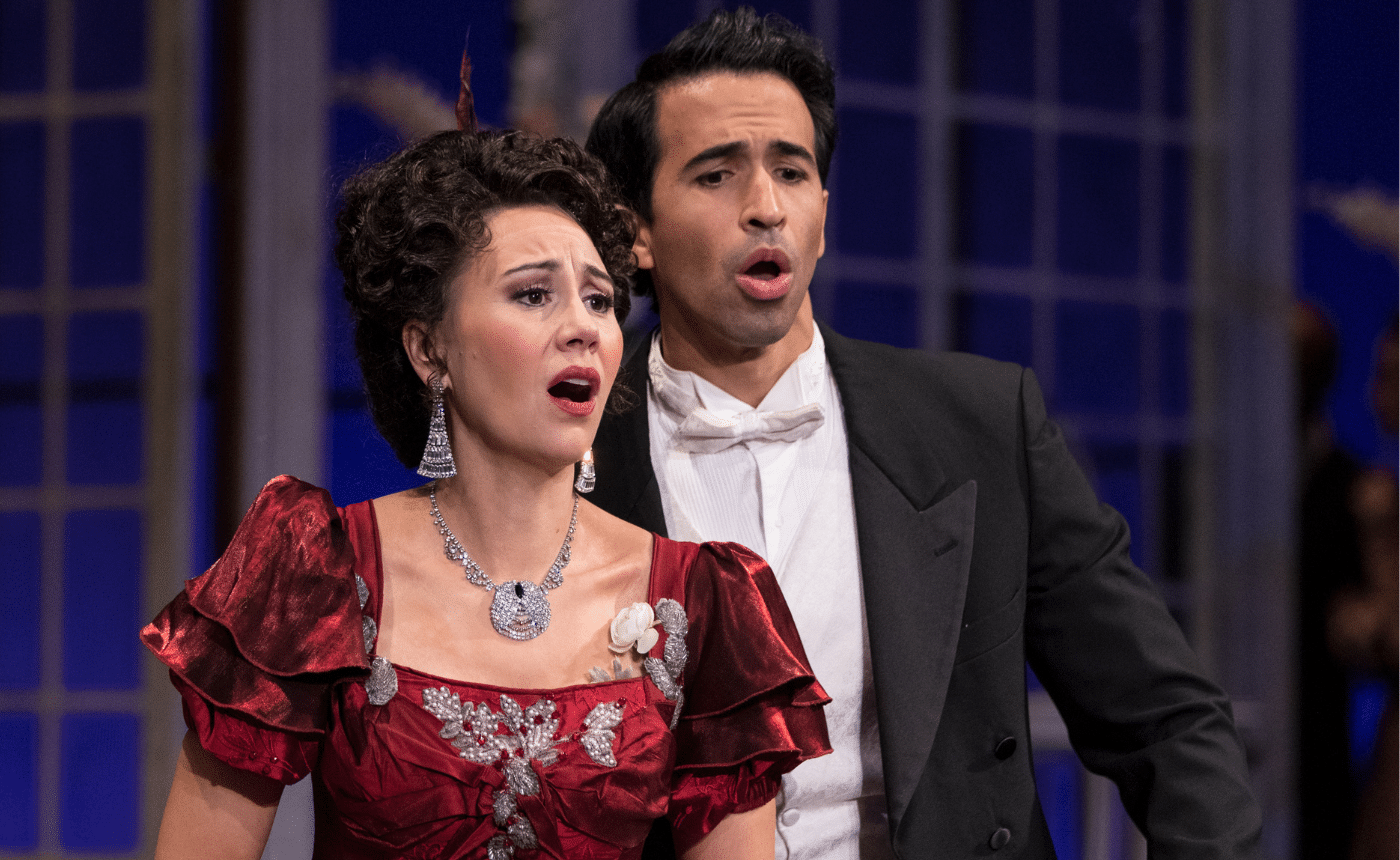MAKING “THE CRAZY” SING
From Monteverdi’s Il combattimento di Tancredi e Clorinda (1624) and Il ritorno d’Ulisse in patria (1639) through Berg’s Wozzeck (1925) and Britten’s Billy Budd (1951), to Silent Night (2011) by Kevin Puts and Mark Campbell, opera composers and librettists have sought to dramatize the devastating effects of war on humankind. To these tales of the Trojan War, the Crusades, the French Revolutionary Wars, and World War I, Opera Saratoga now adds a story from our own time, the story of a man whose home is a mere four-and-a-half hour drive from here.
The Long Walk is based on the harrowing but poignant memoir (subtitled A Story of War and the Life that Follows) of the same name by Brian Castner, a former US Air Force officer who was deployed to Iraq in 2005 and 2006 to lead an Explosive Ordnance Disposal unit, a team charged with disarming IEDs (improvised explosive devices), the deadly “roadside bombs” favored by terrorist groups. When robots and other remote means failed, Castner or one of his team would be obliged to don an 80-pound Kevlar suit and take “the long walk” to disarm a bomb manually. Castner’s brutally vivid book describes not only the carnage he witnessed but how it damaged his mind and his life: When he returned home, he faced a fresh war with an inner demon he dubbed “the Crazy.”
In July 2012, composer Jeremy Howard Beck and librettist Stephanie Fleischmann received a commission for a full-length opera from American Lyric Theater in New York City, an organization devoted to educating and mentoring gifted emerging operatic composers and librettists and to commissioning and developing new American opera. Stephanie and Jeremy, both alumni of ALT’s Composer Librettist Development Program, scoured fiction and non-fiction, movies and plays, to find a story that cried out to be sung and which would also hit the “sweet spot” between the introspective, poetic Stephanie and the emphatic, thrill-seeking Jeremy. After two months of fruitless searching, Jeremy finally found the perfect vehicle in Castner’s hot-off-the-press 2012 memoir, published in August 2012.
Stephanie recalls, “We were both moved by the subject matter. By our distance from Brian’s experience and the intimacy, the closeness to it we experienced through the book. The love and the potential for destruction. The fallout that comes from an injury you can’t see—blast-induced traumatic brain injury. We were both grabbed by the imagery, and by the presence of refrain within the text, the music of that. Brian’s voice felt like a voice in my ear from the very first page of his book, like a friend talking to me.”
Brian Castner was astonished to receive a request to turn his book into an opera, but had readily consented by October 2012. “Brian gave us his blessing to do with it what we needed to do, while still always hewing to the truth he had expressed in his book,” recalls Stephanie. Castner not only graciously granted the rights to his book, but has remained involved in the opera’s development every step of the way, attending libretto and musical workshops, participating in outreach efforts, and, perhaps most importantly, generously inviting Stephanie to his home near Buffalo to meet and talk with his family. Says Stephanie, “I went up and interviewed both Brian and his wife Jessie for hours, my goal being to get inside the experience of the family. We listened to the sounds of Brian’s and Jessie’s voices. I wanted to get even closer than the voice of Brian’s book, to understand his sometimes contradictory impulses regarding being at war and being at home and the pull between the military brotherhood and the family.”
Stephanie’s contact with the Castner family led to a significant departure from the book: the opera has become Jessie’s story as much as Brian’s. It is, in Stephanie’s words, “the story of this family’s struggle, particularly Jessie’s complex relationship to what it is Brian does. Ultimately, we figured out (with a little help from Jessie) that what we were making was a vehicle by which family members who’d gotten their soldier back in one piece might be able to mourn the loss of the loved one they knew before he or she went off to war, so that they could move forward. And that music was the key.”
As inspired as they felt, Stephanie and Jeremy both recognized the challenge of finding the right dramatic shape for Castner’s purposefully nonlinear story, which in the book bounces back and forth free-associatively between his troubled homecoming and his traumatic memories, mirroring his chaotic mind. Observes Stephanie, “The chronology was slippery indeed. We parsed every moment of the book, looking closely at the shape of those moments in all their scope and specificity, especially the places in the book where every moment came back and back, reverberating through the text, like music. We mapped all the images, all the characters, all the time frames, in an elaborate Excel document we taped together that was as tall as Jeremy. We made choices.”
When the draft libretto was done, ALT held a public reading in February 2013 in which actors spoke all of the roles. Castner was there, listening. Stephanie recalls, “He was moved in a way he wasn’t expecting. His soldier friends who had accompanied him to the reading spoke about how true it felt to what he’d written as well as to their EOD experience.”
With the libretto done, Jeremy began composing, with the musical structure stemming directly from the carefully plotted dramatic structure. Jeremy explains, “I knew I would need three different musical worlds: one for Home, one for War/Memory, and one for ‘the Crazy’. And I knew from the beginning that the orchestration/sound-color would be one of the major ways I’d establish the boundaries between those three worlds and keep them distinct—until they crash into each other, which I hope actually feels like worlds colliding.”
“From our very first meetings,” Jeremy continues, “Stephanie and I talked about using the electric guitar as the sound of Home, the world we live in, since our story takes place in the present day and in the U.S. and we wanted the opera to sound of the present in an immediately identifiable way. But the electric guitar has an incredibly diverse range of possible sounds, so I knew it would also help me create the other two sound worlds.
“’The Crazy’ also functions differently from the Home and War sound worlds: It’s more a mode of orchestral behavior. That’s because I needed it to be able to surface anywhere, in any context, just as Brian’s ‘Crazy’ feeling always caught him by surprise. So novelty and unpredictability are important to how ‘the Crazy’ functions musically.”
The guitar’s sound and capabilities grew so important that Jeremy decided to use a pair of them, as well as an electric bass (played by a doubling acoustic bass player), alongside the score’s other 15 more conventional instruments (flute/piccolo), clarinet/bass clarinet, horns, trumpets, trombones, btbn, percussion, keyboard, violins, viola, and cello. Says Jeremy, “Having two guitars instead of one came from the purely practical consideration that so much of this opera is about worlds colliding and interrupting each other. Two guitars allows me to switch between sound colors immediately, and to have two different sounds in rapid alternation or simultaneous, which isn’t something I’d be able to do with just one. And the electric bass underpins the ‘running’ music, which is one of the major architectural linchpins of the show, and which, along with the ‘Crazy’ music, travels between the Home world and the War world.”
As Jeremy composed, first in piano-vocal score, musical workshops were held in June 2013 and June 2014. Brian and Jessie and some of Brian’s EOD brothers attended, and baritone Daniel Belcher (Brian) and mezzo-soprano Heather Johnson (Jessie) had the extraordinary experience of meeting their real-life counterparts. Listening to the opera, Brian and his EOD brothers flashed back. Further revisions, paring, and tightening led up to a final orchestral workshop this past March. These premiere performances represent the final step of the three-year “long walk” from inspiration to fruition of this vital new opera, a testament not only to the horrors of war but to the resilience of the human spirit and the redemptive power of love.
Cori Ellison, Dramaturg at Glyndebourne Festival Opera, had the pleasure of assisting in the development of The Long Walk as a core faculty member and mentor at American Lyric Theater.




